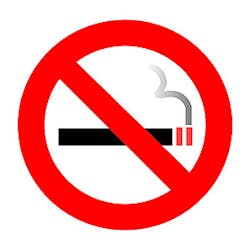Wear Red to Help Fight Against Heart Disease In Women!
Lobelia inflata
If you’re considering a dietary supplement, remember that “natural” does not necessarily mean “safe.” Some supplements may have side effects, and some may interact with drugs or other supplements. In particular, St. John’s wort has been shown to interact with many drugs. For more information on quitting smoking, visit the National Cancer Institute’s quit-smoking resource.(4)
I recently attended the Yankee Dental Congress where I presented a course entitled: Women’s Oral Health Through the Life Stages. The course, as well as others, was sponsored by PennWell® Corporation. My company is Seminars for Women’s Health and Sex Based Medicine.There have been concerns that human papillomavirus (HPV) vaccination could lead to riskier behaviors in vaccinated adolescents. A new study brings to the table the notion that risk perceptions following HPV vaccination were not associated with subsequent riskier sexual behaviors in sexually experienced and inexperienced young women.(5) These data contribute to the growing evidence that HPV vaccination does not lead to changes in sexual behaviors among adolescents. Young women who get the human papillomavirus (HPV) vaccine don't see it as a license to have more sexual partners or forgo condoms, a new study confirms.(5)
References
1. Judith Breuer, Maud Pacou, Aline Gauthier, et al. Herpes zoster as a risk factor for stroke and TIA: A retrospective cohort study in the UK. published online January 2, 2014. Neurology. http://www.neurology.org/content/early/2014/01/02/WNL.0000000000000038.short.
2. Cheng HM, Chung YC, Chen HH, Chang YH, Yeh ML. Systematic review and meta-analysis of the effects of acupoint stimulation on smoking cessation. Am J Chin Med. 2012;40(3):429-42.
3. Tahiri M, Mottillo S, Joseph L, Pilote L, Eisenberg MJ. Alternative smoking cessation aids: a meta-analysis of randomized controlled trials. Am J Med. 2012 Jun;125(6):576-84. doi: 10.1016/j.amjmed.2011.09.028. Epub 2012 Apr 11.
4. smokefree.gov.
5. Mayhew A, Mullins TLK, Ding L, Rosenthal SL, Zimet GD, Morrow C, and Kahn JA. Risk Perceptions and Subsequent Sexual Behaviors After HPV Vaccination in Adolescents. Pediatrics peds.2013-2822; Published online February 2, 2014.
Sincerely,
Maria Perno Goldie, RDH, MS
To read previous RDH eVillage FOCUS introductions by Maria Perno Goldie, go to introductions.
To read more about tobacco use and dental hygiene, click here.

















